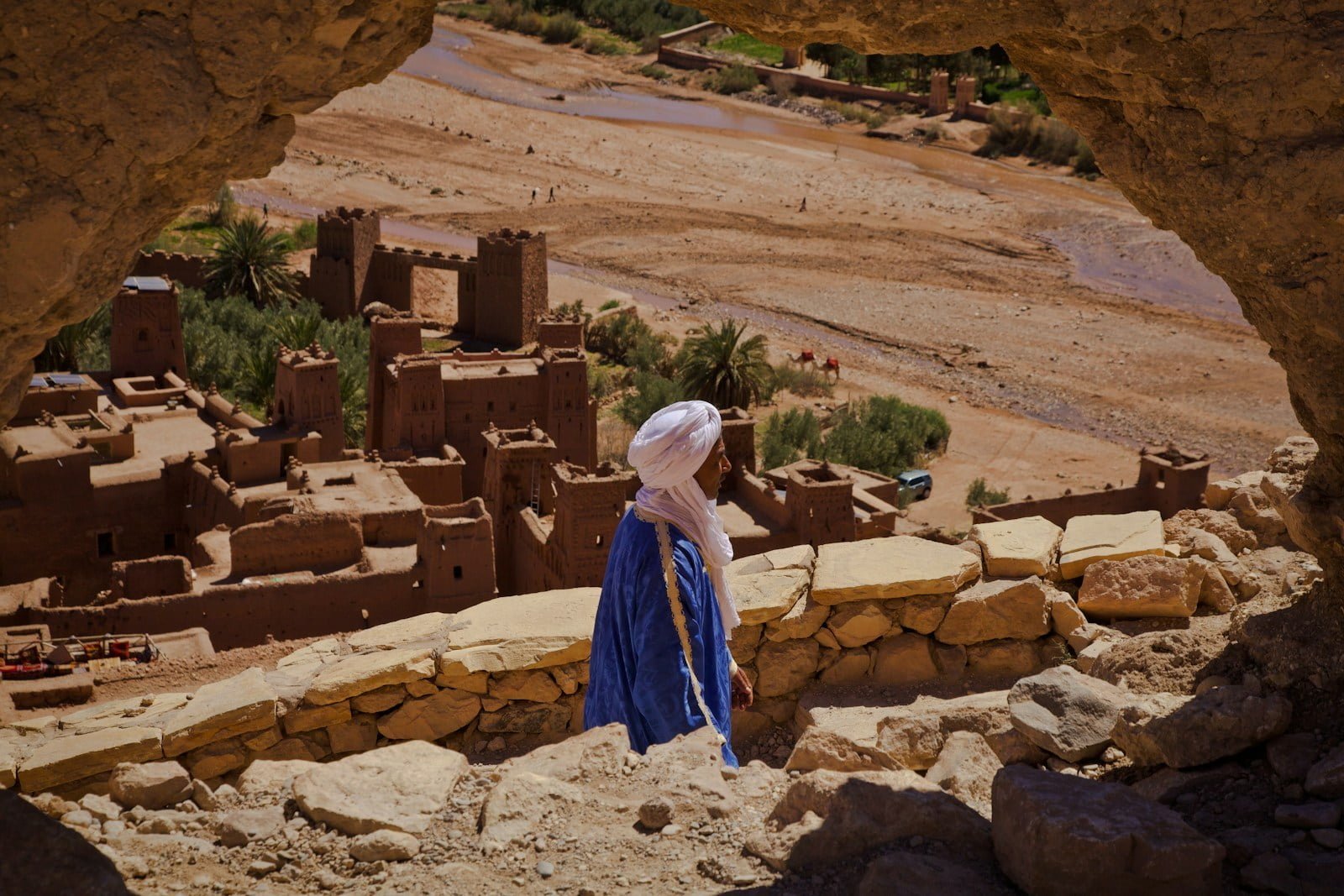Africa is a continent that is rich in resources and potential. In recent years, several African countries have experienced significant economic growth and development, positioning them as key players in the global economy. In this blog, we will explore the top 5 largest economies in Africa, highlighting their respective strengths, challenges, and their relevance in the global economic landscape.
1. Introduction
The article delves into Africa’s economic landscape, focusing on the continent’s top 5 largest economies. It provides insights into the key factors driving their economic growth and highlights their major industries. Nigeria, with a GDP of $514 billion, leads the pack, driven by its oil and gas sector, agriculture, and telecommunications. South Africa follows closely with a GDP of $380 billion, powered by mining, finance, tourism, and agriculture. Egypt, Algeria, and Morocco round out the top five, with GDPs of $365 billion, $190 billion, and $140 billion respectively. Egypt thrives on tourism, petroleum, and agriculture, while Algeria’s economy is dominated by oil and gas, mining, and manufacturing. Morocco’s economy revolves around agriculture, phosphates, tourism, and textiles. The article underscores the significance of these economies in shaping Africa’s economic landscape and contributing to its development.

2. Understanding the economic landscape of Africa
Understanding the economic landscape of Africa is crucial to appreciating the strengths and challenges faced by its largest economies. With a diverse mix of industries, such as agriculture, mining, manufacturing, and services, Africa’s economies have shown resilience and growth potential. However, they also face common challenges such as infrastructure gaps, political instability, and limited access to financing. Despite these hurdles, the top five largest economies in Africa have managed to flourish and attract foreign investments. This success can be attributed to various factors, including favorable government policies, diversification efforts, and improvements in business environments. In the following sections, we will delve into each of these economies individually, examining their key sectors, growth drivers, and future prospects. Stay tuned for an in-depth analysis of each nation’s economic performance and its impact on the African continent.
3. The top 5 largest economies in Africa
In this section, we will explore the top five largest economies in Africa and delve into each nation’s economic performance and its impact on the African continent. These economies have shown remarkable resilience and potential for growth, despite facing common challenges such as infrastructure gaps, political instability, and limited access to financing.
1. Nigeria: As the largest economy in Africa, Nigeria is known for its oil-rich reserves, which have been a major driver of economic growth. However, in recent years, the country has made efforts to diversify its economy, focusing on sectors such as agriculture, manufacturing, and services.
2. South Africa: With a well-developed infrastructure and a diverse range of industries, South Africa has emerged as a leading player in Africa’s economy. The country’s key sectors include mining, manufacturing, finance, and tourism.
3. Egypt: Known for its ancient civilization and cultural heritage, Egypt has built a strong economy based on sectors like tourism, manufacturing, and agriculture. The country has also implemented economic reforms to attract foreign investments and stimulate growth.
4. Algeria: This North African nation has a thriving economy, thanks to its vast reserves of oil and natural gas. In recent years, Algeria has made efforts to diversify its economy by promoting sectors such as agriculture, manufacturing, and tourism.
5. Morocco: With its strategic location, Morocco has become a key player in North Africa’s economy. The country’s economy is diverse, with sectors such as tourism, agriculture, manufacturing, and renewable energy contributing significantly to its growth.
In the following sections, we will dive into each of these economies individually, examining their key sectors, growth drivers, and future prospects. Stay tuned for an in-depth analysis of how these nations shape the economic landscape of Africa.
4. Exploring Nigeria’s dominant position as Africa’s largest economy
In this section, we will take a closer look at Nigeria, which holds the top spot as Africa’s largest economy. Despite its challenges, Nigeria has shown impressive resilience and potential for growth.
Nigeria’s economy has traditionally been driven by its abundant oil reserves. However, in recent years, the country has made significant efforts to diversify its economy and reduce its reliance on oil. The government has implemented policies to promote sectors such as agriculture, manufacturing, and services, which have showcased strong growth potential.
Agriculture plays a crucial role in Nigeria’s economy, employing a significant portion of the population and contributing to food security. The country has a largely untapped agricultural sector with vast arable land, providing opportunities for increased productivity and export potential.
The manufacturing sector in Nigeria has also been a focus area for growth and development. The government has implemented various initiatives to attract investments and promote local production, aiming to reduce the country’s reliance on imported goods and create job opportunities for its growing population.
Furthermore, the services sector, which includes telecommunications, banking, and entertainment, has experienced significant growth in recent years. Nigeria’s youthful population, coupled with increasing mobile phone penetration and access to the internet, has contributed to the expansion of these sectors.
Despite these positive developments, Nigeria still faces challenges such as infrastructure gaps, political instability, and limited access to financing. However, with ongoing reforms and efforts towards diversification, Nigeria’s economy continues to show great promise for the future.
In the next section, we will delve deeper into South Africa’s economy, which holds a significant position in the African continent. Stay tuned for an insightful analysis of South Africa’s key sectors, growth drivers, and future prospects.
5. South Africa’s role as a key player in the African economy
South Africa’s role as a key player in the African economy cannot be understated. As the continent’s second-largest economy, South Africa boasts a diverse range of industries and sectors that contribute to its overall economic growth.
The country’s mining sector, particularly its rich deposits of gold, platinum, and diamonds, has historically been a significant driver of South Africa’s economy. However, in recent years, there has been a shift towards diversification, with the government actively promoting sectors such as tourism, manufacturing, and services.
Tourism plays a crucial role in South Africa’s economy, attracting millions of visitors each year. With its stunning landscapes, vibrant cities, and diverse wildlife, the country offers an array of experiences for tourists. Moreover, the tourism industry provides employment opportunities and drives economic development in both urban and rural areas.
The manufacturing sector in South Africa is another vital contributor to the country’s economy. From automotive manufacturing to textiles and clothing, South Africa’s manufacturing industry has the potential for further growth and job creation.
Additionally, the services sector, including finance, telecommunications, and technology, has seen significant expansion in recent years. South Africa is known for its robust financial system and serves as the regional headquarters for many multinational corporations, making it a financial hub in Africa.
Despite these positive aspects, South Africa faces ongoing challenges, including high unemployment rates, income inequality, and an unreliable energy supply. However, the government’s focus on implementing reforms and attracting investments aims to address these issues and foster sustainable economic growth.
In the next section, we will explore Egypt’s economy, one of the fastest-growing economies in Africa. Stay tuned for an in-depth analysis of Egypt’s key sectors, investment opportunities, and future economic prospects.
6. Egypt’s economic growth and potential
Egypt’s economic growth and potential have made it one of the fastest-growing economies in Africa. With its strategic location, large population, and diverse economy, Egypt offers a promising investment landscape.
The agriculture sector plays a crucial role in Egypt’s economy, employing a significant portion of the population and contributing to food security. The country’s fertile Nile Delta region allows for the cultivation of a wide range of crops, including cotton, wheat, and vegetables. The government’s focus on modernizing agriculture and increasing productivity has further boosted this sector’s potential.
Furthermore, Egypt has a well-established and thriving manufacturing sector. Industries such as textiles, food processing, chemicals, and automotive manufacturing are key contributors to economic growth. The government’s efforts to attract foreign direct investment and promote local industrial development have been instrumental in driving this sector forward.
Egypt’s services sector, particularly tourism, also plays a vital role in its economy. The country’s rich history, cultural heritage, and stunning attractions, such as the Pyramids of Giza and the Nile River, draw millions of tourists each year. The recent reforms and investments in infrastructure have further enhanced Egypt’s tourism potential, creating opportunities for job creation and economic development.
In addition to these sectors, the government has been actively promoting renewable energy as a means to address its energy challenges and stimulate economic growth. With its abundant sunlight and wind, Egypt has the potential to become a regional leader in renewable energy production.
Despite its immense potential, Egypt still faces certain challenges, including high unemployment rates, income inequality, and a bloated bureaucracy. However, the government’s commitment to economic reforms, investment-friendly policies, and infrastructure development positions Egypt for sustained economic growth in the future. Stay tuned for our detailed analysis of Egypt’s key sectors and investment opportunities.
7. Examining the economic progress of Algeria
Algeria, with its vast reserves of natural resources and a growing manufacturing sector, has emerged as one of the largest economies in Africa. The country’s strong economic growth and development have been driven primarily by its oil and gas industry, which accounts for a significant portion of its GDP and export revenues.
Aside from the energy sector, Algeria has also made great strides in diversifying its economy. The government has implemented policies to promote industrialization and attract foreign investment across various sectors, including manufacturing, construction, and agriculture. These efforts have led to the creation of job opportunities and a more robust economy.
The manufacturing sector, in particular, has witnessed significant growth, contributing to Algeria’s economic progress. Industries such as petrochemicals, textiles, construction materials, and automotive assembly have seen substantial investments, resulting in increased production and exports.
Moreover, the agricultural sector plays a pivotal role in supporting Algeria’s economy and ensuring food security. The country has a favorable climate for various crops, such as cereals, citrus fruits, and olives. The government has been actively supporting farmers and implementing initiatives to modernize the sector, leading to improved productivity and quality of agricultural produce.
In recent years, Algeria has also seen a surge in tourism, driven by its rich cultural heritage, historical sites, and stunning landscapes. The government has recognized the potential of this sector and has taken steps to further develop infrastructure and promote the country’s tourism offerings. This has resulted in an increase in tourist arrivals and revenues, contributing to the overall economic growth.
While Algeria’s economy has made significant progress, challenges such as high unemployment rates, corruption, and over-reliance on oil exports still persist. However, the government has acknowledged these issues and is working on implementing reforms to address them. These reforms aim to create a more diverse and sustainable economy, boosting private sector involvement and creating opportunities for both domestic and foreign investments.
In our upcoming blog, we will delve deeper into Algeria’s economic sectors, examining the potential investment opportunities and the government’s strategies for future growth. Stay tuned for insights into this dynamic and promising economy.
8. The rising economic status of Morocco
Morocco, located in North Africa, has been experiencing significant economic growth and development in recent years. Considered one of the largest economies in Africa, Morocco has been successful in diversifying its sectors and attracting foreign investments.
One of the key contributors to Morocco’s economic growth is its agricultural sector. The country has favorable climate conditions for crop cultivation, allowing for the production of a wide range of fruits, vegetables, grains, and agricultural products. The government has implemented modernization initiatives in this sector, leading to increased productivity and exports.
In addition to agriculture, Morocco has also made strides in developing its manufacturing industry. With a focus on sectors such as textiles, automotive, chemicals, and electronics, the country has attracted investments from multinational corporations. This has resulted in the creation of job opportunities and the generation of export revenues.
Another significant sector in Morocco is tourism. The country boasts a rich cultural heritage, historical sites, vibrant cities, and picturesque landscapes. The government has been proactive in promoting tourism, investing in infrastructure, and facilitating visa requirements to attract international visitors. As a result, Morocco has experienced a steady increase in tourist arrivals and revenues, boosting its overall economic growth.
Furthermore, Morocco has invested heavily in renewable energy. With a strong commitment to reducing its dependence on fossil fuels, the country has been focusing on solar and wind energy projects. This green energy revolution not only promotes environmental sustainability but also creates new business opportunities and jobs.
Despite these achievements, Morocco still faces challenges such as high unemployment rates and regional disparities. However, the government has been implementing various initiatives and reforms to address these issues. These efforts aim to create a more inclusive and sustainable economy, with a focus on job creation, enhancing education and skills training, and promoting entrepreneurship.
In our next blog, we will explore the investment opportunities in Morocco’s expanding sectors and delve into the government’s strategies for further economic development. Stay tuned for an in-depth analysis of Morocco’s growing economy.
9. Conclusion: The future of Africa’s largest economies
Conclusion: The future of Africa’s largest economies
In conclusion, it is evident that Morocco is one of the largest and fastest-growing economies in Africa. With its focus on diversifying sectors, attracting foreign investments, and implementing modernization initiatives, the country has achieved remarkable economic growth and development.
The agricultural sector, manufacturing industry, tourism, and renewable energy have played vital roles in Morocco’s economic success. These sectors have created job opportunities, increased exports, and attracted international visitors, contributing to the country’s overall economic growth.
However, it is important to acknowledge that challenges such as high unemployment rates and regional disparities still exist in Morocco. The government’s commitment to address these issues through initiatives and reforms will not only create a more inclusive and sustainable economy but also contribute to the country’s future growth.
In our next blog, we will delve deeper into the investment opportunities available in Morocco’s expanding sectors and analyze the government’s strategies for further economic development. Stay tuned for a comprehensive examination of Morocco’s growing economy.



















